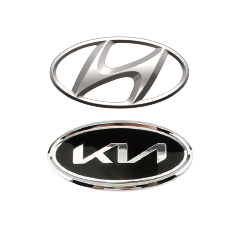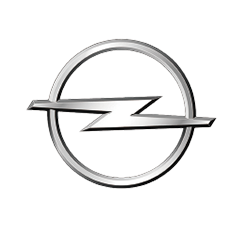"Designated cargo refers to the foreign buyer's designation that the forwarder is responsible for arranging the transport of the cargo for him. Usually refers to FOB, EXW and other freight-to-pay goods (i.e., freight borne by the foreign buyer of the goods).
Operation process of designated goods
Firstly, the freight forwarder appointed by the buyer (hereinafter referred to as the foreign agent) sends an email or through other contact methods to contact its domestic company or partner, informing the contact information of the shipper.
Secondly, after receiving the shipper's contact information, the domestic forwarder will contact the shipper to enquire about the status of the goods and inform the foreign agent by email or other means. If the cargo is ready, it can inform the other party of the expected shipment and ask whether the shipment can be arranged. If you use the booking number of the foreign agent, you should also ask for the booking number so that you can submit it to the shipping company. Special attention should be paid to the fact that the designated cargo is to listen to the consignee's instructions, not to listen to the consignor's, when the consignor has any requirements that are not in line with the norm, you must inform the foreign agent, and only after obtaining the permission of the foreign agent can you make arrangements, or else you can't accept the consignor's requirements. Especially when you operate the consignor's goods for the first time, you should pay more attention. To avoid unnecessary trouble. When the foreign agent's permission to get instructions, you can arrange booking trailer customs clearance and other matters. Of course, the stable goods can be booked while informing the other side of the voyage information. At the same time, you need to ask the other party what format of HBL is issued, usually, it will be the HBL provided by the foreign agent, and during the period of arranging the shipment of goods, if there is any update of the status of the goods and what kind of problems are encountered, you have to communicate with the foreign agent in a timely manner. After the goods are loaded and shipped, after the bill of lading is issued, you need to ask the foreign agent how much the handlingcharge is, and then send it to the foreign agent together with MBL, HBL, PSS (profitsharesheet), and other customs clearance documents (if the agent asks you for them). In addition, as there may be more than one co-operative agent in the same country, do not confuse the goods between different agents, so as not to cause unnecessary embarrassment. If your company has its own branch in the country, you should not disclose the information of the branch to the foreign agent, which will make the foreign agent feel that you are competing with him and affect the future co-operation.
What kind of risk will be pointed to order goods
As the bill of lading issued by the freight forwarder to the consignor is HBL (forwarder's bill of lading) rather than MBL (shipping company bill of lading), and HBL can not really achieve the purpose of controlling the right of goods, so it will result in the foreign agent "without a single release of goods", that is, the foreign agent in the absence of HBL, by virtue of its possession of the MBL from the shipping company to extract the goods released to the consignee, resulting in the consignor without a single release. To the consignee, resulting in the consignor of goods empty situation. Of course, the situation of releasing goods without bill of lading has been very rare now. However, when exporters and importers for the first time to co-operate, still need to pay attention to this problem. Should try to urge the consignee to pay as soon as possible.
The difference between the three:
Issued by the main body is not the same: MBL is a shipping company issued by the bill of lading, HBL is a freight forwarder based on the MBL bill of lading, issued by the freight forwarding company, HBL is not want to issue on the issuance of the main body of the issuance of the HBL at least in the port of destination has an agent.
The head is not the same, MBL is to the shipping company for the head, HBL is to the name of the freight forwarder for the head.
Different ways of receiving goods at destination: MBL can be directly to the shipping company to take delivery of goods, HBL must be exchanged for MBL to the forwarder's agent at the port of destination first, and then go to take delivery of goods by virtue of MBL, which is commonly known as the exchange of orders. Or by the destination port customers with HBL directly to find the freight forwarder's agent to pick up the goods.
The scope of application is different: MBL applies to FCL; and LCL, the freight forwarder can only give the customer signed HBL, or electric discharge. Because the shipping company will not help you to consolidate, to the destination port will not help you to divide the goods. This situation can only be out of HB/L or electric release.
Although it is said that the shipowner's bill (MB/L) is the most basic property right certificate, but it is rigid, and you can't influence many terms in it. If you are doing L/C, but you can't produce in the stipulated delivery date and can't get on the ship, then you can choose to issue HB/L and ask the forwarder to sign the bill of lading for you. If you do L / C, review the single time you did not find inside the special requirements of the ship (such as: age, ship registration, ISMCODE, proof of freight, port of call, ship's certificate, etc.) and the shipping company can not produce these, how to do? Not according to the requirements of the bill of delivery, the settlement can not be, in the L / C does not specify the case of not accepting the bill of lading, SHIPPER will generally choose to ship the bill of lading. Another is: in the consignor did not receive the payment of foreign customers, it may require the issuance of a freight forwarding order in order to control the goods, to avoid the money and goods are empty.
There is also a special case: involving a third party, the intermediary does not want to let the final customer know the source of the goods and other information, it is possible to request the issuance of the freight forwarder's list, in order to achieve the purpose of protecting trade secrets. The issuance of the shipowner's bill is a safer choice for both the consignor and the freight forwarder. To the consignor for the shipowner's reputation and safety factor is certainly stronger than the freight forwarder, in general, will believe the shipowner, and the shipowner compared to the freight forwarder must have a few points of insecurity. For the freight forwarder is also safer, do not need to use the agent, in case the agent roll cargo away, the freight forwarder is considered to be a waste of work, and even follow the closure. So the whole container export until the last resort, the forwarder is not very willing to issue a single freight forwarder. Costs: shipowners single port of destination pickup generally does not generate any costs, the freight forwarder single pickup will certainly charge the port of destination customer's bill of exchange fee (may also be paid by the consignor to the freight forwarder, the freight forwarder separately and the agent settlement).




